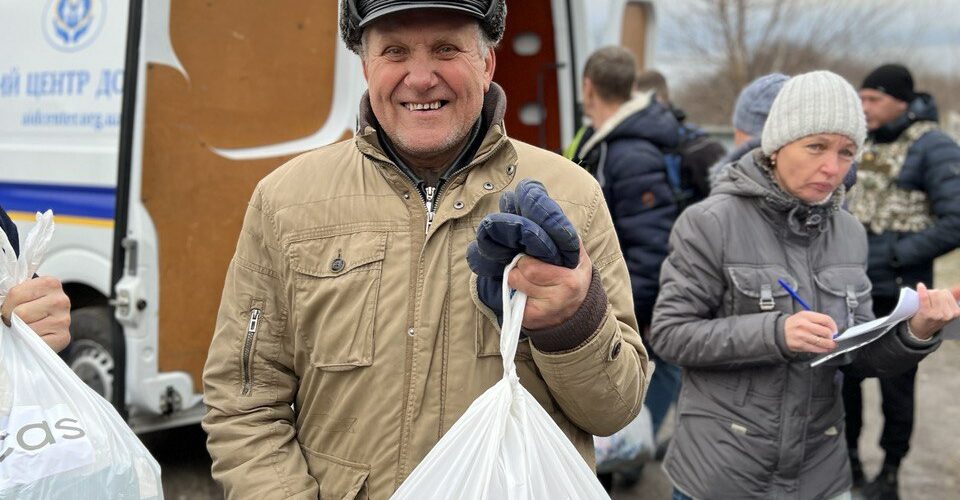"We had to change our humanitarian assistance in Ukraine after the war started"
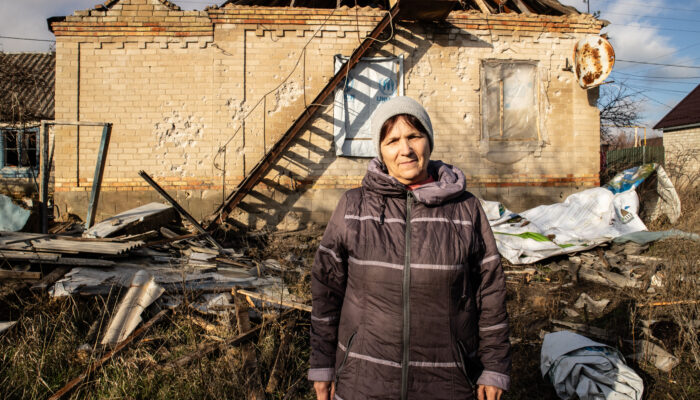
What are you doing at Dorcas?
Within my role as a Humanitarian Assistance Expert, I support country offices in humanitarian assistance guidance: for example, leading country needs assessment, design theories of change, proposal writing, assessing opportunities for partnerships and coordination and representation. I make sure that we include global humanitarian trends. I am also always looking for sustainable and durable solutions and outcomes for projects and the people in it.
As a Strategic Programme Advisor I also work with the country offices but more on a programmatic level. I support our team in setting strategic planning and I help them to write annual strategies and with technical support ensuring quality impact. My role includes collaboration and coordination with organisations and stakeholders to mobilise resources for Ukraine and to advocate for the needs and rights of affected populations.
What do you do on a workday?
That is an interesting question since I wear several hats in my job. It depends on the urgency of the needs that need to be responded to and the amount of calls for support I receive. Some days I work on something for the longer run but I often have to respond to an urgent need or a proposal that has to be sent out very quickly.
I often evaluate our programmes by asking the question: Are we giving people what they need and are we doing that in the most effective way? Feedback from local communities is very helpful in this process, in order to improve.
In my work for the team in Ukraine I also focus on the social component: we want to make communities more socially coherent. We believe in local ownership and we therefore work to foster engagement in local decision-making and support grassroots organisations. Local institutions and civil society organizations can lead these efforts. We work towards social tolerance of a pluralistic Ukrainian identity, promoting coexistence among different socio-political groups in Ukraine, including internally displaced persons.
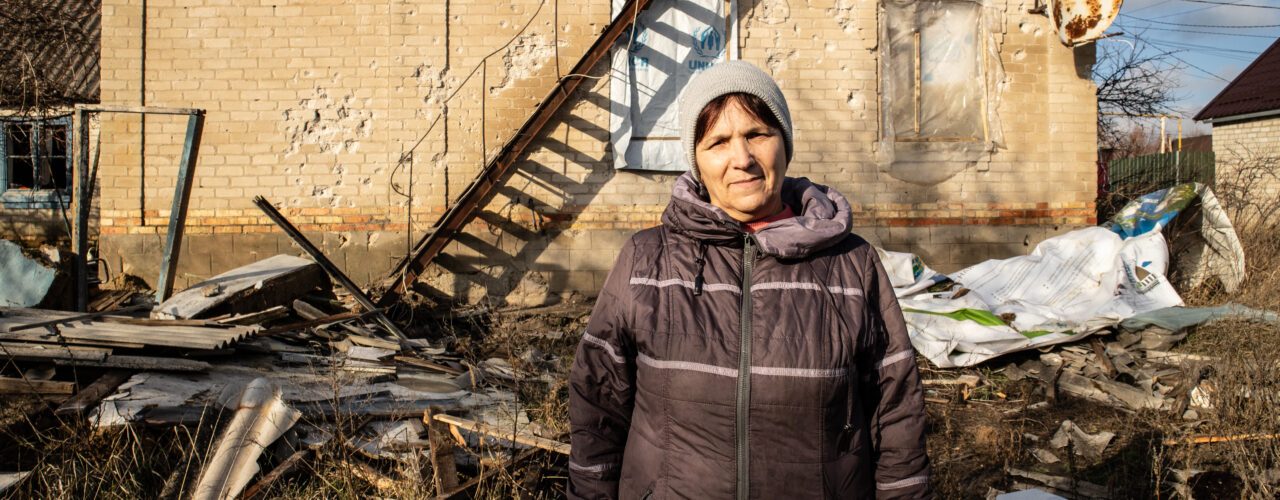
What is Dorcas doing in Ukraine?
Dorcas has been present in Ukraine for a long time, about 25 years. We started with a local office in the west of the country, in Transcarpathia, responding to the flooding in 1988. The work that Dorcas was doing was very much community-based and focused on the development of their societies.
After the invasion of the Russia in Ukraine, Dorcas needed to upscale its programmes and could not do anything else than respond to the needs of the affected population. Therefore, Dorcas started a second office in the east, in Zaporizhia and Donetsk counties. In that same period, the organisation transitioned from direct care to development of community safety nets, from a mere sole implementer to an active networker, collaborating with different actors, focused on creating hope and perspective for the most marginalised.
Over the past two years, we have been doing recovery and humanitarian assistance, which means that we are distributing food and non-food items, providing cash assistance, and preparing people for winter. Since we are currently working at the frontline with children and families that are directly confronted with the conflict, we also offer MHPSS. Our MHPSS programming aims at promoting people’s mental health, psychosocial well-being and resilience. This is being done through creating child-friendly spaces where peer-to-peer support groups take place. Sessions include raising awareness on protection risks that children and parents might experience, in addition to safely identifying people with psychosocial needs and referring them to specialised services.
On the other hand, our programmes include career and business development, coaching, skills training, and start-up finance for small businesses. Many Dorcas project participants have great business ideas, existing small business and talents. Unfortunately, many lost their main source of income during the war, either by being directly affected by resources loss or by being internally displaced. We support those people by providing them with small funds to establish/enhance their small business such as purchasing greenhouses to expand their crop production. Another example is supporting project participants in attending skills-based trainings, such as cooking, hairdressing and IT training courses.
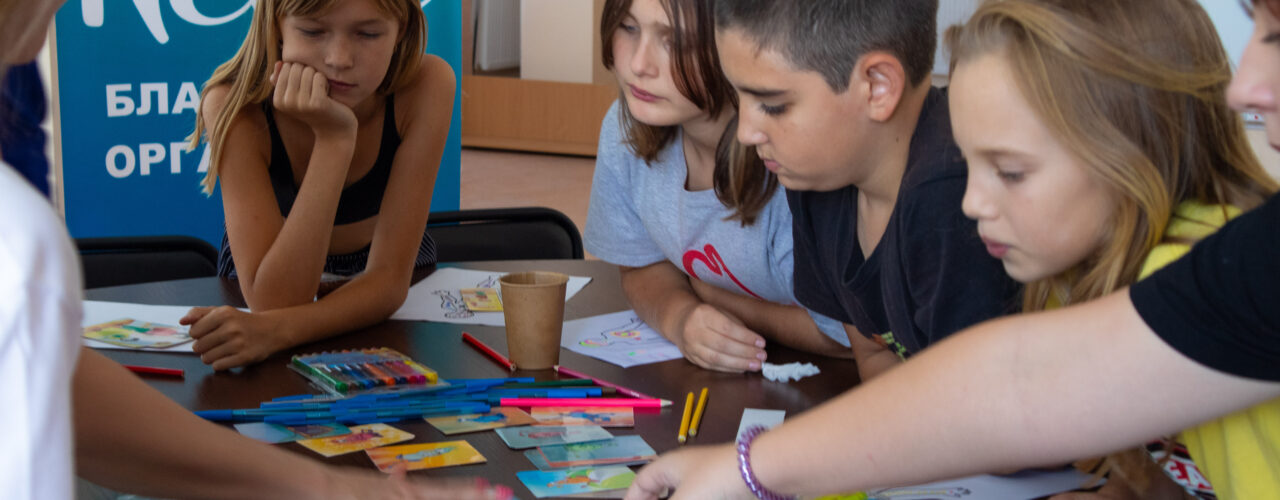
We work together with project participants to building their economic resilience while addressing their immediate humanitarian needs.
How did Dorcas’ support change after the war started?
Before the conflict, we were working with local churches as local groups. We worked, amongst others, on economic resilience, and we had programmes in which it was possible to sponsor a child or an older person. Children and older people are two of the most marginalised categories in poverty or conflict settings. Through private small donations, children living in poverty, or unaccompanied children can access school and medical services again. In most countries, older people have little income due to their age and suffer from limited access to healthcare and social security services. Sponsoring older people helps them to live in dignity and give them the chance to access basic services.
Throughout all these programmes, Dorcas wants to give as much ownership as possible to local communities. We do not want to have a top-down approach, but we want people to create their own projects, focused on what they need most. We are still running these projects, but of course, we had to change our focus because of the conflict. Because Dorcas was already present in the country for many years and receives trust from many communities, it was easy to change focus and adapt the assistance to what was most needed.
Did you visit the projects?
That is a good question, I wish I could visit them more often but travelling to and in Ukraine is becoming extremely difficult with all the security restrictions that are in place. During my visit, I was only able to visit and support the team in the office.
What are you proud of?
I am very proud of our staff members. I often realise that they survived the conflict themselves, that they are stressed and have to work in very insecure circumstances. Even though this must be extremely difficult for them, they are all very motivated and committed to ensure that they offer the people in our projects high-quality humanitarian support.
What are the challenges within the projects?
That is not a difficult question. Human resources in Ukraine were and remain a challenge. Because of the situation in which colleagues are living in, there is a high turnover in staff and therefore it is hard to fill some positions. A second thing is self-care. It is very important for colleagues to think about their own well-being and look after their colleagues, but that is not easy since the situation is very fragile and difficult.
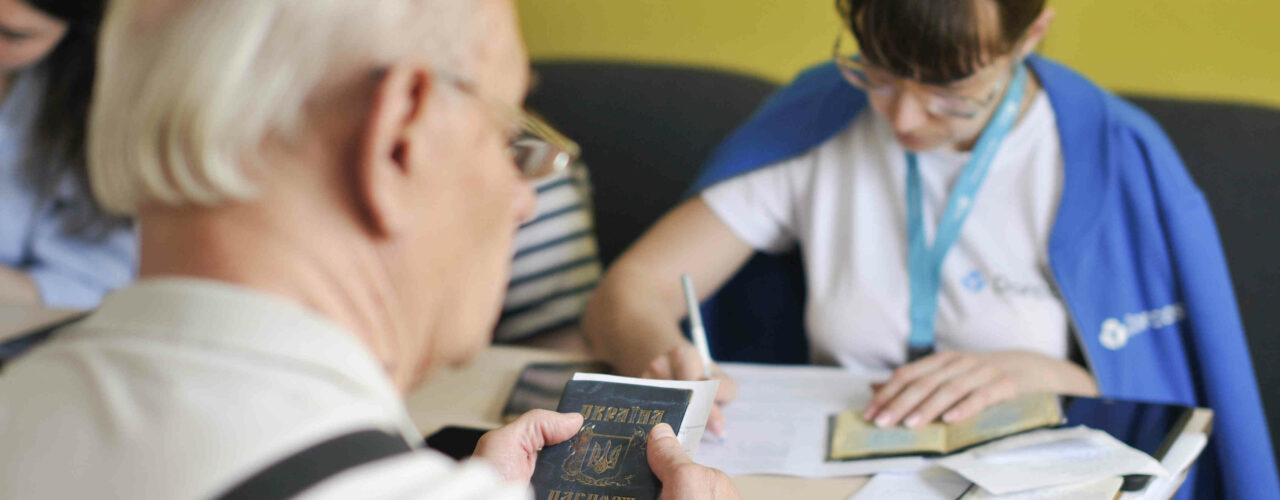
And what is a challenge in your own work?
That there is this constant ‘what if’ question. We do not know how the conflict will develop or when it will be over. We can try to plan projects and start implementing them, but if there is a massive invasion overnight, we have to change focus again. I also really see it as a limitation that I can’t travel to Ukraine on a regular base to visit the office and the projects due to all the restrictions that are in place.
We see that the media attention on the situation in Ukraine is getting less, do you feel that?
Of course, we constantly try to emphasise the need for humanitarian assistance at the frontline but also in the East, where many people fled to. We are not the only organisation that is trying hard to get more funding. More NGOs within the DRA are trying to get more support from the government to help the most marginalised and affected communities.
Did you also notice that Ukraine is framed in the media as a country that is currently in the reconstruction phase?
Yes, I am very aware of that and I am a bit sceptical about talking about reconstruction at this point. The country is still in the middle of a conflict and the invasion is still ongoing. The idea behind is that we cannot wait with reconstruction of the country until the conflict is over. Off course that is partly true but I also somewhat feel that we should not be talking about reconstruction yet. However, it is a sensitive topic and this is just my personal point of view.
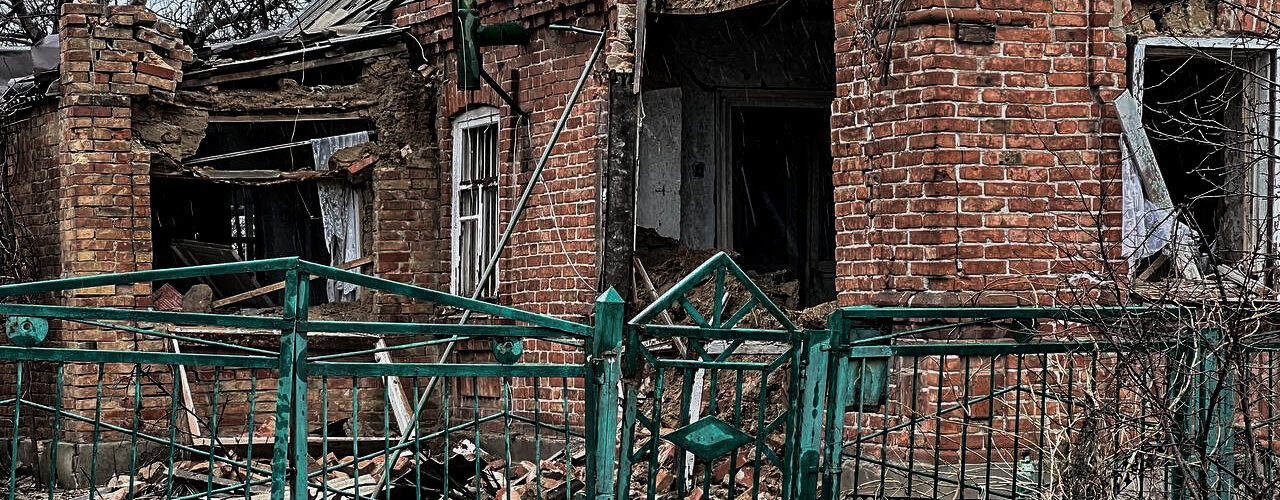
What hits you when you are thinking about this conflict?
I think that what is hurting me the most is that I have the feeling that governments are more focused on minimising spillovers of the war in the region instead of focusing on peace. I am not saying that they do not want peace but I see that we are losing lives, infrastructure etc. and I do not know if what we are currently doing is correct.
What is your dream for the projects?
I hope that Dorcas will become a leading organisation that works in an innovative way in how we reach the most marginalised people and communities. I hope that we will come up with new approaches and ways of working that are not used by other organisations yet.
What is your wish for Ukraine?
Of course I cannot end this interview without expressing my wish for peace all over the world. I truly hope that the Ukrainians will get more resilient and are able to come out of this situation with limited negative consequences, and that they will be given the chance to start a new chapter in their lives very soon.
Read more about the work of Dorcas in Ukraine here.
Author: Marianne van Elst-Sijtsma
Date: 11th of July 2024
